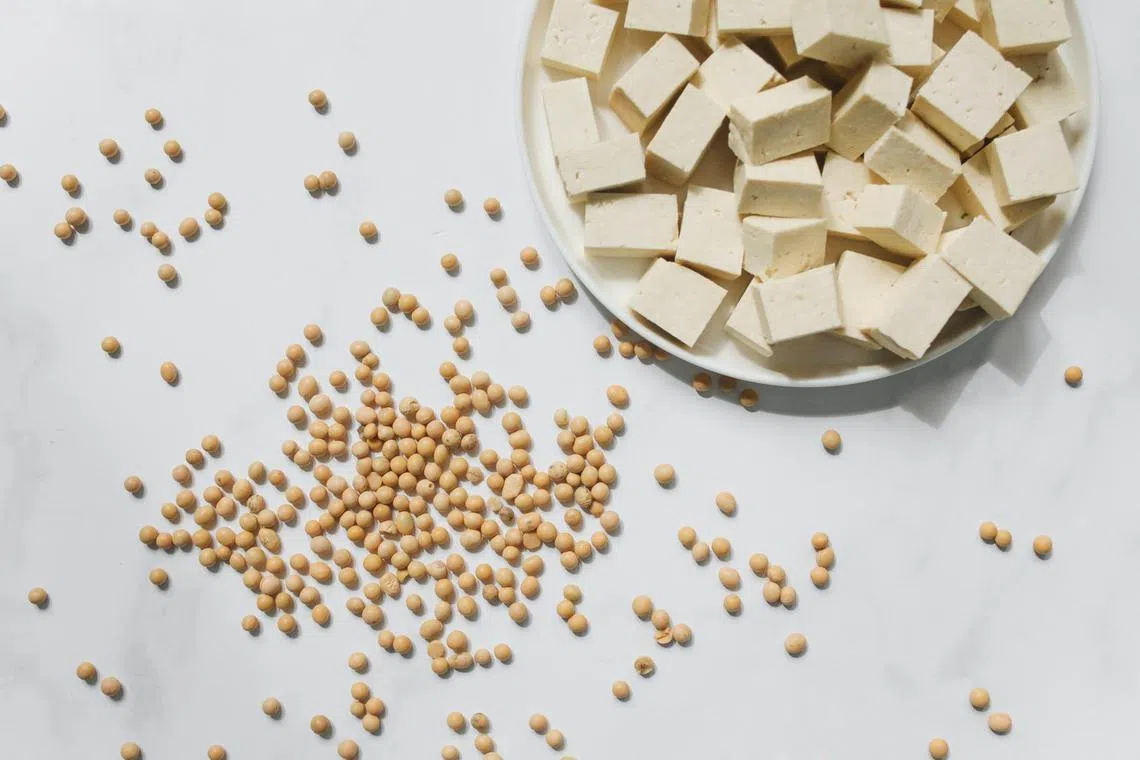Soya bean paste, tofu linked to lower gastric cancer risk
Sign up now: Get insights on Asia's fast-moving developments

Men who consumed tofu at least twice a week had a 37 per cent reduced risk of getting stomach cancer.
PHOTO: PEXELS
SEOUL – Eating soya products such as tofu and soya bean paste can decrease the risk of developing gastric cancer, research showed on Wednesday.
A joint research team led by professors Kang Dae-hee and Shin Woo-kyoung of Seoul National University’s Department of Preventive Medicine showed that higher consumption of soya or bean-based products may be linked to a reduced risk of getting stomach cancer.
The finding was based on research conducted over an average of nine years with 139,267 participants – 46,953 male and 92,314 female – who participated in the Health Examinees study between 2004 and 2013.
The research team also tried to closely examine the effects of consuming soya beans, soya bean paste and tofu on gastric cancer, with some 767 respondents who had cancer.
Soya bean paste, also known as South Korea’s seasoning paste, is made by fermenting cooked soya beans with salt over several months.
Tofu is made from soya beans ground in water, then heated, and later coagulated with calcium or magnesium salt minerals.
The results showed that men who consumed tofu at least twice a week had a 37 per cent reduced risk of getting stomach cancer compared with men who did not eat much tofu.
Men who consumed tofu and had a body mass index below 23kg per sq m, or those who weighed below the male average, had a lower risk of developing stomach cancer, while such correlations were not observed in obese or overweight men, according to the research group.
The research team also found that genistein, a compound found in soya products, and isoflavone, a type of oestrogen-like substance produced by plants like the soya plant, may reduce the risk of gastric cancer.
“Soya bean paste made in Korea is considered to have a better effect on preventing gastric cancer as more physiologically active substances are produced during the long fermentation process,” said Prof Shin.
The research was also published in the latest edition of the European Journal of Nutrition, which publishes original papers, reviews and short communications in the nutritional sciences. THE KOREAN HERALD/ASIA NEWS NETWORK


